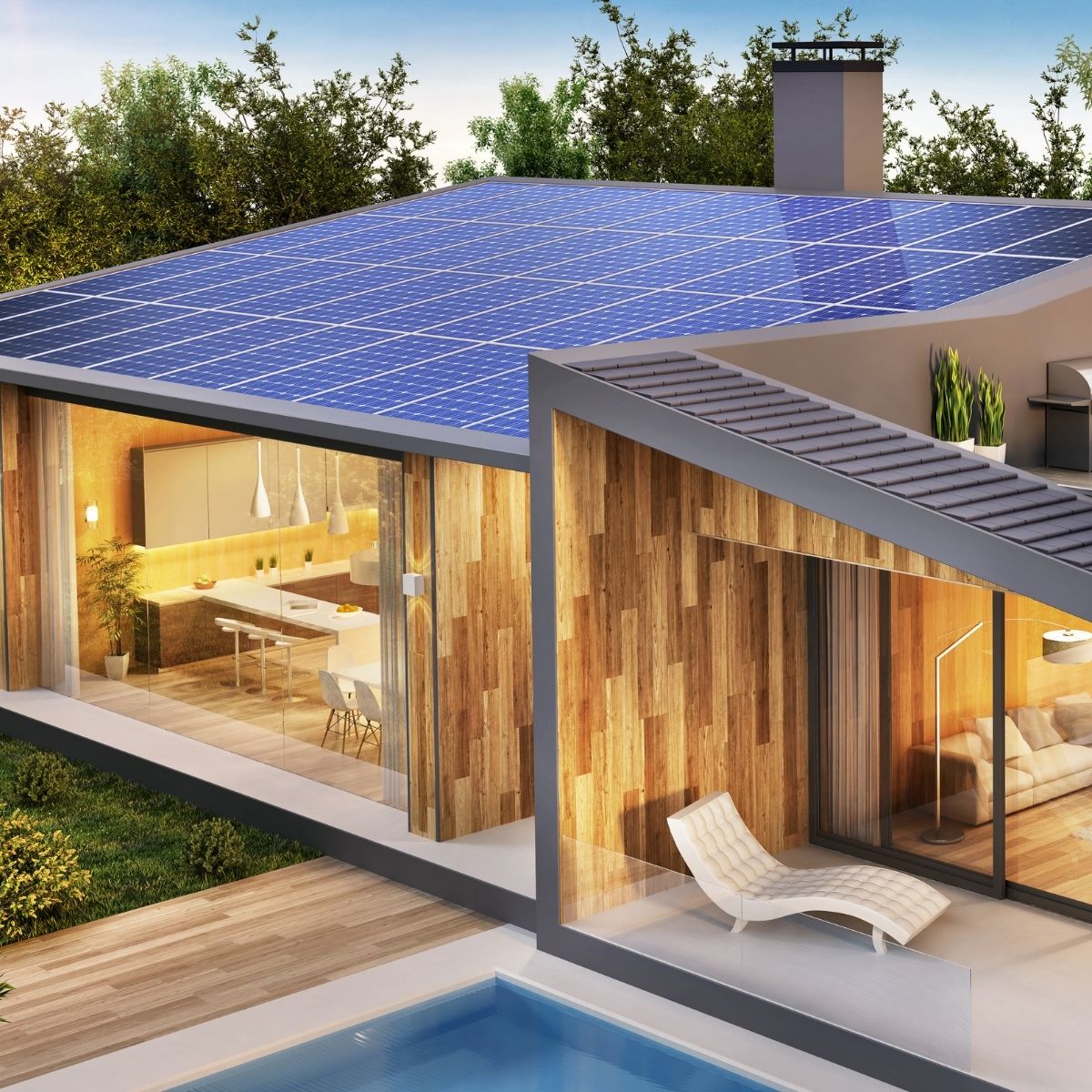Disclosure: This post may contain affiliate links. This means that at no cost to you, we may earn a small commission for qualifying purchases.
Last Updated on April 7, 2024
Making the switch to solar panels is one you won’t regret. The money savings over time are well worth the initial cost, but not if you’re going to have constant repairs due to water damage. So, you need to know the facts about whether solar panels are waterproof before installing them.
Because solar panels are designed for outdoor use, they must be able to withstand all weather conditions, including heavy rain. In fact, many solar panels are waterproof enough to work underwater.
In the following sections, we’ll discuss what measures are taken to make solar panels waterproof and answer some questions related to solar panels and water resistance.

Contents
What Makes Solar Panels Waterproof?
If you are looking into solar panels as a new energy source for your home, of course are solar panels waterproof? is a question you’ll need to know the answer to before you make such a big investment.
Fortunately, that answer is yes. In fact, rain is good for solar panels. Dust and pollen can interfere with solar panels’ efficiency, and rain keeps them washed off periodically.
Not only will solar panels handle rain, but they will also stand up to other forms of precipitation like snow and sleet. When solar panels are installed correctly, you won’t have to worry about them lifting during high winds, either.
To be fair, we must point out that “waterproof” isn’t an industry term, because it is too hard for manufacturers of any kind — not just solar panels — to guarantee 100% waterproof products. The term that most companies opt for is “water resistant.”
As you probably know, water and electricity don’t mix, so the wiring inside your solar panels needs to be protected in order for solar panels to function for 30+ years as guaranteed.
Here’s how solar panel manufacturers do that:
- Glass on front – There is thin but very strong tempered glass on the front of the panels so it doesn’t interfere with the solar cells collecting sunlight, but it fully protects the surface of the panel. Tempered glass is capable of holding up to sleet and falling debris during storms, not to mention rainfall.
- Polymer back – The backsheet of the solar panel is a solid polymer or plastic piece that provides protection from precipitation and insulation for the solar cells within.
- Metal frame – Most solar panel frames are made of aluminum which fits tightly against the panel “sandwich” (front, solar cells, backsheet) on both sides. Aluminum is also thin and lightweight yet durable enough to withstand decades of weather.
- Sealant – Silicone adhesives that are suitable for glass, metal, and plastic are used to seal solar panels when they are manufactured. These sealants are resistant to heat, UV rays, and, of course, water.
And in case of accidents and malfunctions, solar panel companies offer warranties for the solar panel itself and against installation errors so that you, the homeowner, are not responsible for replacing a faulty product or one that was installed incorrectly by a certified installer.
FAQs
Now that you understand the measures that are taken to make sure solar panels are water resistant, here are a few other frequently asked questions concerning solar panels and waterproofing.
It’s not really possible to make them more water resistant than they already are. You can, however, seal them after installation with silicone adhesive which fills in gaps around the frame that may have been loosened during installation.
You’ll want to look for solar panels with the highest waterproof rating you can afford. High-quality solar panels will be rated IP67 or IP68, while lower quality solar panel would be rated at IP65.
Nothing! In addition to being water resistant, solar panels are set at an angle to capture maximum sunlight, but this also allows rain to roll right off.
In fact, it’s recommended that you spray them off with a low-flow water hose (no pressure washers!) to keep the dust and debris off of them. This keeps your solar panels functioning at maximum capacity.
Surprisingly, solar panels can not only be submerged in water without being damaged, but they can also produce energy from underwater.
Assuming that the water is clear, solar panels work with around 50% efficiency from up to 50 feet underwater.
Of course, you need to check the items specifications for the exact brand and style of solar panels you have before submerging them underwater. If they aren’t recommended for this type of use, don’t try it!
Conclusion
Now you can answer the question Are solar panels waterproof? with authority. All solar panels are designed for outdoor use, so they are water resistant to some degree.
Like with anything else you purchase, the quality and effectiveness of their waterproofing measures usually depends of the cost and quality of the panels themselves, as long as they are installed correctly.